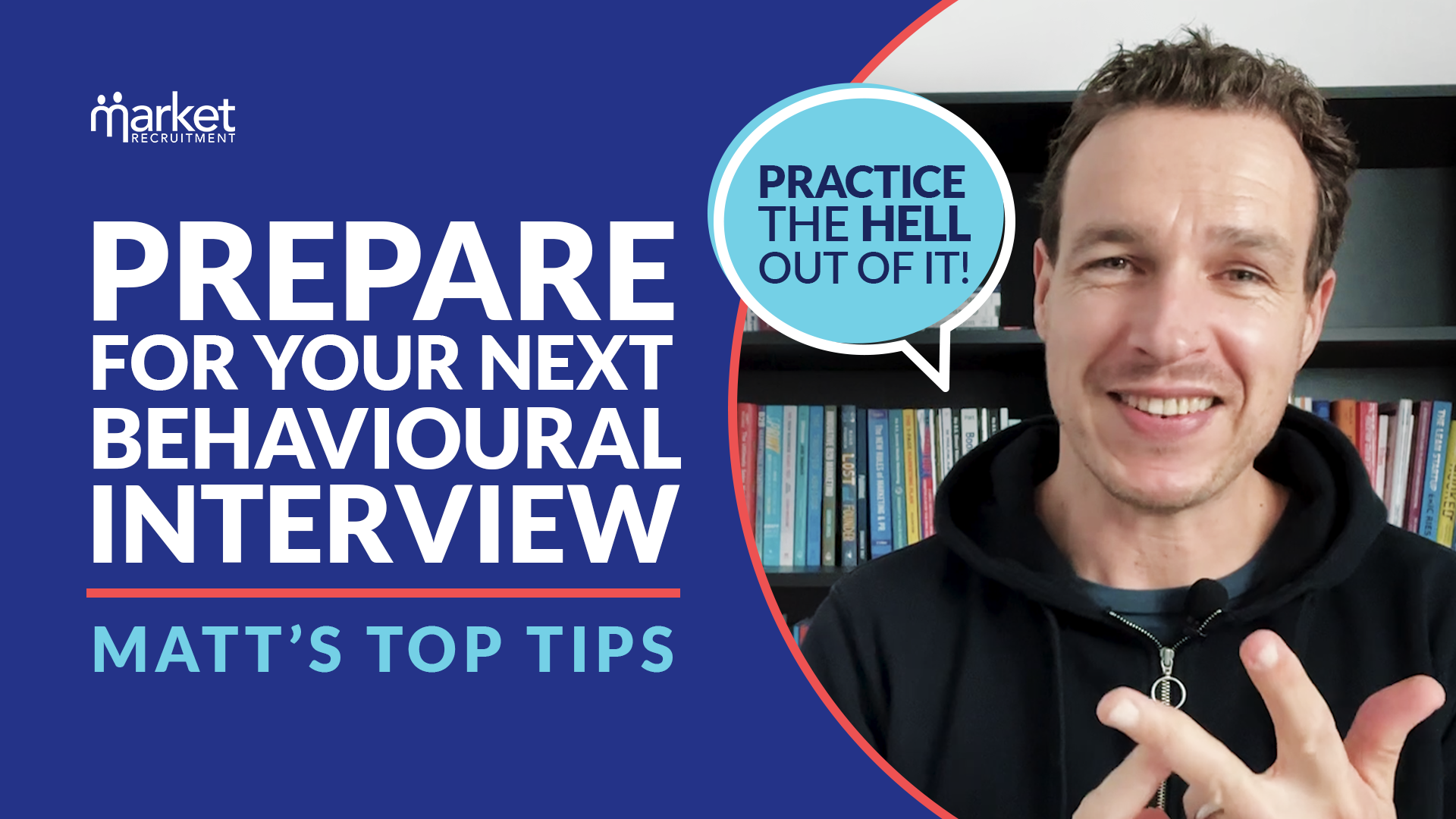
Without doubt, behavioural interviews can be some of the hardest interviews to have and prepare for.
Because they can be very different to preparing for a typical interview.
In most cases, you don’t know the behaviours they’re assessing you for in the first place.
And then it can be a case of trying to remember exactly what happened, in a particular situation from the past, while trying to cope with the inevitable stress of an interview.
But, there is a way to make behavioural interviews easier.
And in this video, I’m going to give you an easy structure to follow so you can prepare better and ace your next behavioural interview.
So the first step is to read the job description. Because in that job description will be some clues about what behaviours they’ll be asking you questions about.
In the B2B marketing world, these will be phrases like;
And off the back of those phrases, you may find you get interview questions like this;
“Give me an example when your workload was too much, how did you prioritise what to do?”
“When the sales team has asked you for something which they think is important but you don’t, how did you handle that situation?”
“Give me an example of a time when someone disagreed with your idea, how did you approach bringing them around to your view?”
Check out this list of 40 behavioural interview questions for more examples.
Further Reading; B2B Marketing Interview Questions – The Comprehensive Guide
So, once you’ve identified what you think the behaviours are likely to be in your behavioural interview, the next step is to get a piece of paper and write down each one you think might come up.
Then alongside that list, you’re going to have 4 headings;
And for each behaviour you’re going to write down an example of when you’ve had to show that behaviour.
Context is exactly what you think it might be, it’s just giving some context to your example.
Action is the action that you took. Avoid the word ‘we’ because it’s important for employers to understand exactly what you did, not what the team did.
Result speaks for itself. It doesn’t always have to be a positive outcome, honesty and humility are important traits too.
And then lastly, learnings. What did you learn, how would you do it differently this time.
So, once you have that down it’s now about practising and saying this allowed so it comes as naturally as talking to one of your friends. It needs to feel like a story.
And the only way to do this is to simply practice reciting it, over and over.
Now, from my experience, most people skip over or don’t go into enough detail on the action part in behavioural interviews.
If anything, you need to lift the drama a bit here, because sometimes retelling it doesn’t quite live up to the reality of what is was like for you.
So really focus on that because employers really want to know what you did, so it’s arguably the most important part of your answer.
So to recap;
Finally, apart from behavioural interview questions, it’s important you answer these three critical interview questions to win the job.
Subscribe to our fortnightly newsletter to hear about our latest podcasts, blogs, career advice & jobs.